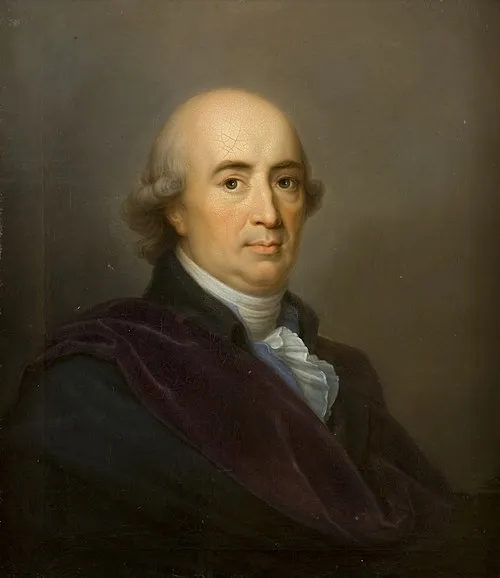
Birth Year: 1744
Name: Johann Gottfried Herder
Nationality: German
Profession: Poet, philosopher, and critic
Death Year: 1803
Johann Gottfried Herder: The Voice of Humanity and Culture
Born in the small town of Mohrungen, in the Prussian province of East Prussia, 1744 marked the beginning of a life that would significantly shape literary criticism and philosophical thought. However, Herder's journey was anything but linear; his formative years were filled with struggles and intellectual pursuits that would later define him as a prominent figure during the Sturm und Drang movement. With his unwavering belief in the power of language and culture, he became a champion for what it meant to be human a legacy that resonates even today.
The Early Years: Seeds of Inspiration
Herder’s childhood was not steeped in privilege; he grew up within a family struggling to make ends meet. His father worked as a carpenter, which meant young Johann often witnessed labor’s harsh realities. Despite this backdrop, he showed an early affinity for literature reading works by Shakespeare and various Enlightenment thinkers while surrounded by rustic landscapes that ignited his imagination. Perhaps this contrast between hardship and beauty sparked his lifelong quest to explore humanity's essence through art.
A Turning Point: The Move to Königsberg
At 18, he ventured to Königsberg University an institution famed for its rigorous academic environment where Immanuel Kant once taught. It was here that Herder encountered diverse philosophies, yet ironically felt more drawn towards the emotive power of poetry than rigid rationalism. During one particularly influential discussion group on aesthetics led by Kant himself, Herder began articulating thoughts on cultural identity, arguing passionately that every nation has its own spirit or 'Volksgeist.' This notion became central to his philosophy a radical departure from prevailing ideas at the time!
The Influence of Travel
Despite academia offering rich nourishment for Herder's mind, it was travel that transformed him profoundly. In 1769, he took off for Strasbourg an adventure prompted by an invitation from poet Johann Wolfgang von Goethe! Herein lies perhaps one of his most significant achievements: immersing himself into various cultures across Europe broadened his understanding immensely. His observations during these travels cemented an idea many modern thinkers still grapple with today that culture is not monolithic but kaleidoscopic! Yet again emphasizing how art echoes humanity’s diverse experiences...
The Birth of 'Volksgeist'
By the time he returned home from Strasbourg laden with new ideas about identity shaped through language and tradition , something beautiful began emerging in literary circles the notion that every folk possesses a unique spirit reflected through their art forms! This idea served not only as an intellectual concept but also resonated deeply within societal structures across Europe struggling against rigid hierarchies imposed upon them by dominant empires.
A Critical Eye: Literary Criticism
No longer merely passive observers bound by historical constraints or national borders; instead citizens united under common experiences transcending time itself... One cannot overlook how much influence Herder exerted over subsequent generations particularly when it came to literary criticism! He argued passionately against conventional approaches dominated solely by analysis based on form rather than content the very soul behind artistic expression!
"Every poem is an embodiment not just words put together but reflections encapsulating shared emotions." - Johann Gottfried Herder
This assertion foreshadowed future explorations into psychology intertwined with aesthetics... Though some contemporaries scoffed at this viewpoint citing inconsistency among poetic structures themselves; however even then it hinted toward deeper connections between creator & creation...
The Genesis Of 'Ideas For The Philosophy Of History'
In 1784: He published one remarkable work titled “Ideas For The Philosophy Of History,” whereupon readers were introduced fascinating notions regarding cultures evolving organically through intricate interactions over generations! Ironically though captivating…these arguments evoked both applause & outrage alike not just because they challenged established doctrines…but forced us all reconsider our own identities while embracing diversity around us!
Later Years And Death
If only we could transport ourselves back into those lively discussions held among luminaries fueled by endless cups coffee discussing philosophy late into night…But instead let’s fast-forward towards year "1803," where tragedy struck when illness claimed him too soon amidst vibrant collaborations throughout European landscape all yielding fruitful explorations across disciplines beyond mere poetry anymore.” Sadly leaving profound voids echoed throughout centuries henceforth.
A Legacy That Resounds Today
Eerily prophetic much? While we navigate today's complexities influenced heavily by globalization challenging notions nationalism Herder stood bravely at forefront urging empathy towards fellow beings reminding us we share similar struggles despite our different languages/spiritualities.... . Argue whether history indeed repeating itself? Who knows… But perhaps now more than ever feeling resonance beneath surface reaching out searching connection bridging gaps separating humanity apart yet again!" . . • Despite centuries passing since penning down reflections exploring human spirit – artists worldwide still echo sentiments captured long ago pushing boundaries creating new dialogues surrounding identity(s) relating back present contexts demanding answers questioning motives behind creations expressed artistically individually collectively ! Let’


